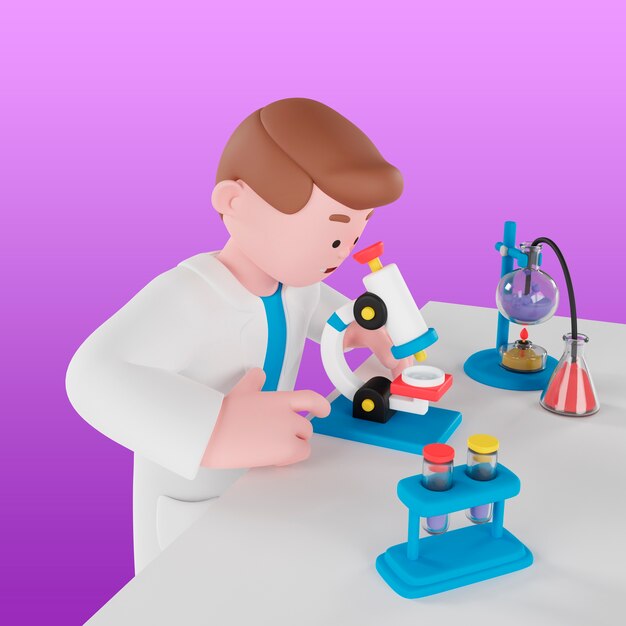Cario Growth Services Private Limited
Email: contact@cariogrowth.com
Work Hours
Monday to Friday: 9:30AM - 6PM
Saturday: 10AM - 5PM
Cario Growth Services Private Limited
Email: contact@cariogrowth.com
Work Hours
Monday to Friday: 9:30AM - 6PM
Saturday: 10AM - 5PM


Shaping the Future: The Role of a Biofabrication Engineer
Introduction
In the ever-evolving world of biotechnology and healthcare, a new and exciting profession is emerging: Biofabrication Engineering. These innovative professionals are at the forefront of a transformative field that combines biology, engineering, and materials science to create functional and customized biological tissues, organs, and implants. In this blog, we’ll delve into the roles and responsibilities of a Biofabrication Engineer, shedding light on their pivotal role in shaping the future of healthcare.
Biofabrication Engineer: A Multidisciplinary Trailblazer
A Biofabrication Engineer is a multidisciplinary expert who combines principles from various fields to engineer biological structures. Their primary roles and responsibilities include:
Tissue Engineering: Biofabrication Engineers work on the development of artificial tissues and organs. They design and build scaffolds that mimic the structure of natural tissues, integrating living cells into these structures. These bioengineered tissues have the potential to revolutionize transplantation and regenerative medicine.
Bioprinting: One of the key techniques in biofabrication is bioprinting. Engineers use specialized 3D printers that can deposit cells, biomaterials, and growth factors layer by layer to create complex biological structures. Biofabrication Engineers are responsible for operating and optimizing these bioprinters.
Material Selection: The choice of biomaterials is crucial in biofabrication. Engineers must select biocompatible materials that can support cell growth and tissue development. This involves extensive research and testing to identify the most suitable materials for specific applications.
Cell Culture and Maintenance: Biofabrication Engineers work with living cells and must ensure their proper culture and maintenance. They develop protocols for cell expansion, differentiation, and quality control to create functional tissues.
Quality Control: Ensuring the quality and safety of biofabricated products is paramount. Engineers establish rigorous quality control measures to monitor the viability and functionality of engineered tissues and organs.
Research and Development: Biofabrication is a rapidly evolving field. Engineers engage in continuous research and development to improve existing techniques, develop new materials, and enhance the scalability of biofabrication processes.
Regulatory Compliance: As biofabricated products move closer to clinical use, Biofabrication Engineers must navigate complex regulatory requirements and ensure that their work adheres to ethical and legal standards.
Interdisciplinary Collaboration: Collaboration with biologists, medical professionals, material scientists, and regulatory experts is essential. Biofabrication Engineers bridge the gap between these disciplines to achieve common goals.
Education and Outreach: Many Biofabrication Engineers are involved in education and outreach activities to share their knowledge and promote awareness of the field. They may teach courses, participate in public engagement, and mentor aspiring engineers and scientists.
The Impact of Biofabrication Engineers
The work of Biofabrication Engineers has far-reaching implications:
Advancing Medicine: Biofabricated tissues and organs have the potential to address the shortage of donor organs and improve the success rates of transplants. They also hold promise for treating degenerative diseases and injuries.
Personalized Healthcare: Customized biofabricated implants and tissues can be tailored to individual patient needs, reducing the risk of rejection and improving patient outcomes.
Reducing Animal Testing: Biofabrication enables the development of advanced in vitro models for drug testing and disease research, reducing the need for animal testing.
Sustainability: The field of biofabrication also explores the use of sustainable biomaterials, contributing to environmentally friendly approaches in healthcare.
Conclusion
Biofabrication Engineers are pioneering a new era in healthcare, where the boundaries between biology and engineering blur. Their roles and responsibilities encompass a wide range of skills and knowledge, from tissue engineering to regulatory compliance. As they continue to push the boundaries of possibility, Biofabrication Engineers hold the promise of transforming healthcare, improving the lives of countless individuals, and bringing us closer to a future where customized, bioengineered solutions are commonplace.
About Cario Growth
Interested to learn more about Biofabrication Engineering? Interested in earning a job at Biofabrication industry? At Cario Growth, we teach & train you in Biofabrication Engineering with the “First Principles Approach” . We have collaborated with Industrial Experts. Note: Since we are more like an educational institutions teaching the innovative programs of tomorrow, as per regulations we cannot provide you a degree or diploma. However, we provide you with Industrail trainig certifications. Visit cariogrowth.com to know more. contact@cariogrowth.com